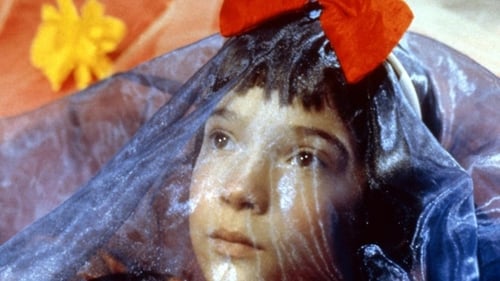Little Girl (2020)
ジャンル : ドキュメンタリー
上映時間 : 1時間 25分
演出 : Sébastien Lifshitz
シノプシス
The touching portrait of eight-year-old Sasha, who questions her gender and in doing so, evokes the sometimes disturbing reactions of a society that is still invested in a biological boy-girl system of thought.

A headstrong young girl in Afghanistan, ruled by the Taliban, disguises herself as a boy in order to provide for her family.

A storm is coming; the winds are getting strong. The real source of the ominous winds lies with Jina, who finds the strange word 'LingLing' written in her father’s notebook. She suspects he is cheating on her mother, who appears to be bored with life and fills the house with potted plants as if to show for her apathy. The film too is riddled with images of humid air and foul-smelling water, impure and overflowing. The sway of her father’s fishing pole and the flutters in Jina’s skirt seem perilous and unstable. When her anxiety and doubts finally come to a head, the family squarely face the rough downpour brought on by the storm. The director’s talent in boldly translating the characters desires and sensibilities into a narrative with powerful imagery is quite impressive.

Two actresses take us through a series of 'raps' and sketches about what it means to be beautiful and black.

Katie Couric travels across the U.S. to talk with scientists, psychologists, activists, authors and families about the complex issue of gender.

What would happen if the boys were girls and the girls were boys? Kim is still a virgin and unhappily in love with a girl. After the gym class he talks to his friend Robin to get some support and ask for advice.

Soon after New York state passed a 2015 law that health insurance should cover transgender-related care and services, director Tania Cypriano and producer Michelle Hayashi began bringing their cameras behind the scenes at New York’s Mount Sinai Hospital, where this remarkable documentary captures the emotional and physical journey of surgical transitioning. Lending equal narrative weight to the experiences of the center’s groundbreaking surgeon Dr. Jess Ting and those of his diverse group of patients, BORN TO BE perfectly balances compassionate personal storytelling and fly-on-the-wall vérité. It’s a film of astonishing access—most importantly into the lives, joys, and fears of the people at its center.

A compelling feature length documentary about five young people who neither feel male nor female, but rather somewhere in between.

Seven year old Ludovic (Ludo) is transgender and believes god has made a mistake. Assigned male, the film follows her difficult journey to get her family to see what seems obvious to her - that she is a girl.

THE PERFUMED GARDEN is an exploration of the myths and realities of sensuality and sexuality in Arab society, a world of taboos and of erotic literature. Through interviews with men and women of all ages, classes, and sexual orientation, the film lifts a corner of the veil that usually shrouds discussion of this subject in the Arab world. Made by an Algerian-French woman director, the film begins by looking at the record of a more permissive history, and ends with the experiences of contemporary lovers from mixed backgrounds. It examines the personal issues raised by the desire for pleasure, amidst societal pressures for chastity and virginity. The film discusses pre-marital sex, courtship and marriage, familial pressures, private vs. public spaces, social taboos (and the desire to break them), and issues of language.

Borrowing its title from the William Carlos Williams poem of the same name, Nameless Spectacle revela in the beauty of ordinary life through themes of voyeurism, power, and sexual violence. Projected on two duelling screens the viewer is unable to focus on the parallel perspectives of the film’s dual perspectives.

Lucio is a family man who secretly experiences a crisis with himself related to his sexuality. Living years of agony, he decides to assume his true sexual condition for his family and friends.

Gender activist Diane Torr’s worldwide appearances and workshops are now legendary. For the past thirty years, the main focus of this performance artist’s work has been an exploration of the theoretical, artistic as well as the practical aspects of gender identity. Katarina Peters’ documentary observes a Diane Torr workshop in Berlin in which a group of open-minded women come together to discover the secrets of masculinity. What makes a man a man and a woman a woman? Precisely when and where is gender identity formatted? How much is nature and how much nurture? Each of Torr’s workshops represents an open-ended laboratory experiment in social behaviour in which the question is posed: is it possible to deliberately play out different roles and create a space in which to transgress both masculine and feminine characteristics?

Torn from their home by a hand in the sky, colorful entities seek freedom from a rigid binary in this short experimental animation.

A short documentary exploring the gender inequality that male artistic swimmers are facing in the Olympics, including intimate interviews with Spanish mixed duet Pau Ribes and Emma Garcia, and legendary American male artistic swimmer Bill May.

A teenage tomboy, tired of being bossed around by her strict guardian, impersonates a man so she can have more fun. She quickly discovers that being the opposite sex isn’t as easy as she had hoped for. What ensues is a gender-bending comedy decades ahead of its time.

Sari works in middle management for a multinational company, and a promotion is within her grasp. She just has to finish her last presentation, break the glass ceiling and make it to the conference room in time.

Seven women and one non binary person share their personal experiences with masturbation through short anecdotes and a revolutionary washing machine.

A collage of interviews analyzing the internet, political polarization, incel culture, the far-right, and the process by which young people can evolve towards extremism.

A work produced for the Morimura Yasumasa Exhibition at the Yokohama Museum of Art, (April 6 to June, 1996). It was shown in an old-style theater constructed within the exhibit space that featured photographs of Morimura playing famous foreign and Japanese actresses.

A documentary that proposes a conversation about the way children are praised. While girls are often praised solely for their appearance, boys can receive compliments by highlighting their skills. "Rethink the Praise" reflects on the power of words and culture that has brought an imbalance in the way we commend our boys and girls.

















